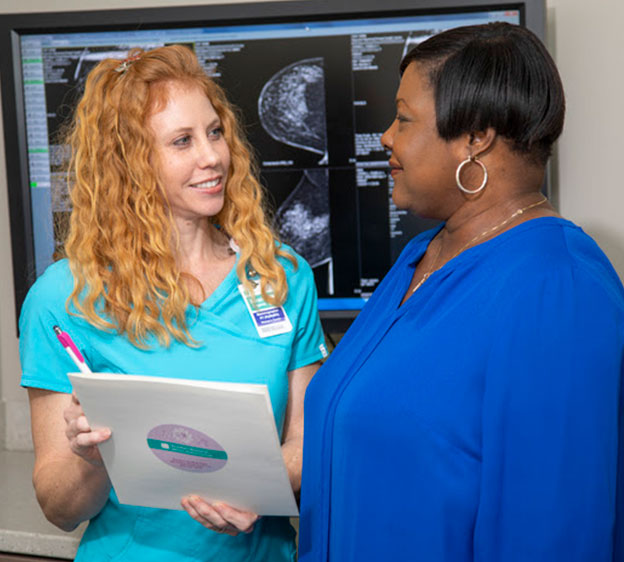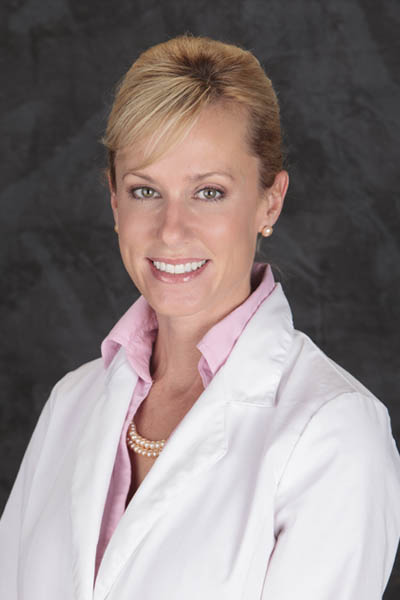
If you’re a woman who’s 40 or older, you may have had a mammogram. But would you know whether it was a screening mammogram or a diagnostic mammogram?
While most women know the basics about these important imaging scans, including why it’s important to have them, some of the terminology used about this common test can be confusing.
Both screening and diagnostic mammograms are types of X-rays that take images of your breasts so physicians can visualize tissue and see any abnormalities that may be too small to cause symptoms or be felt during a clinical breast exam.
However, these breast imaging exams have different goals, and you may need one more than the other.
What’s a Screening Mammogram?
If you’re having a mammogram as a preventive measure based on your age, it’s a screening mammogram. This test, recommended every year for women starting at age 40, can detect breast cancer early when the disease is easier to treat and you have more options for treatment.
Screening mammograms also provide important information about your breast health, allowing your provider to not only spot potentially cancerous tissue but also look back at previous images to detect changes over time.
Women considered to be at a higher risk for breast cancer may need to begin their annual screening mammograms earlier than age 40. And those determined to have dense breasts may need an automated breast ultrasound in addition to their annual mammogram.
Read More: Do You Need Genetic Testing for Cancer?
“Early detection makes a difference, both in our options for treatment and in overall outcomes, which is why we recommend annual mammograms,” says Amy Hane, BSN, RN, at the Beaufort Memorial Breast Health Center. “Detecting breast cancer in women early could lead to better survival rates. For women whose breast cancer is detected while still localized to the breast tissue, the five-year relative survival rate is 99%.”
Because screening mammograms are considered preventive care, insurance providers often cover them at no cost to you. If you don’t have insurance or your provider doesn’t cover them, you can purchase a voucher for a screening mammogram at a discounted price through our partnership with MDsave.
Read More: 5 Questions About Mammograms Answered
What’s a Diagnostic Mammogram?
During a screening mammogram, a mammography technologist captures images of all areas of the breasts. If something suspicious is spotted on your screening mammogram, the radiologist will likely recommend that you undergo a diagnostic mammogram.
While the same technology is used in both cases to capture images of the breast tissue, a diagnostic mammogram focuses in on specific areas of the breast. Images from a diagnostic mammogram offer more detail than images from a screening mammogram.
Your provider may recommend a diagnostic mammogram for other reasons, for example, if:
- You experience other signs of breast cancer, such as swelling, skin dimpling, breast pain and nipple changes
- Your provider feels a lump during a clinical breast exam
Read More: Breast Cancer Screening for Women With Dense Breasts
Another difference between screening and diagnostic mammograms is how quickly you receive results. For a screening mammogram, a mammography technologist captures the images, and a radiologist reads them after the exam. If the radiologist has access to your prior films, your results will be provided the same day to you and your primary care provider or OBGYN. During a diagnostic mammogram, the radiologist typically reviews the images of the breast tissue during the exam. This allows the specialist to determine in real-time if there is a need to capture more images of the breast with mammography or a different modality such as ultrasound or MRI. Based on what is revealed in the images, the radiologist may recommend a biopsy to determine if an abnormality is cancerous.
Finally, unlike screening mammograms, diagnostic mammograms are not considered preventive so coverage and out-of-pocket costs will vary depending on whether you have insurance and your specific insurance plan.
Due for a screening mammogram? Call 843-522-5015 or submit a request to schedule your exam at one of our three convenient locations in Beaufort, Okatie or Hilton Head Island.

